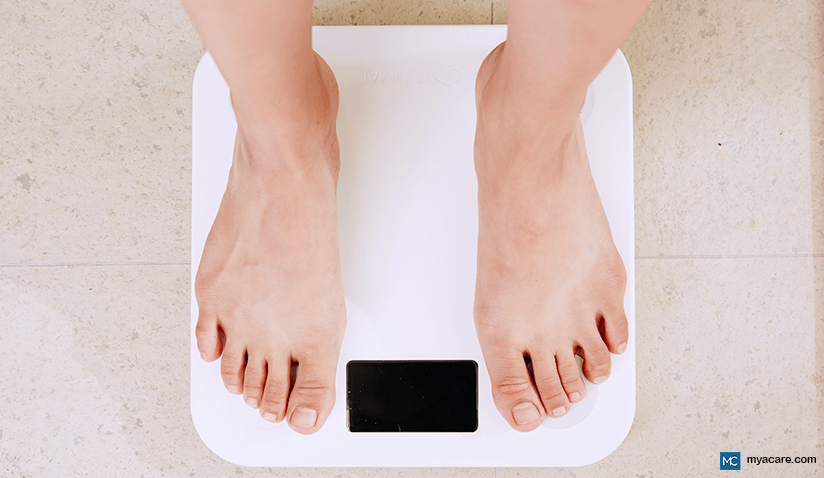BARIATRIC SURGERY - IS IT THE BEST OPTION FOR YOU?

Bariatric surgery (also called weight-loss surgery) has become a popular tool for losing weight in people who are drastically overweight. However, this is a radical approach to losing weight quickly and it can come with a high rate of complications. On top of this, the patient is expected to make sudden lifestyle changes and while there are successes, permanent weight loss is still not guaranteed.
The surgery involves shortening the lengths of the valves in the stomach in different ways to reduce the amount of food you eat. It contributes to weight loss in these two ways:
- By restricting the amount of food your stomach can hold
- By preventing absorption of nutrients and calories
Keep in mind there is more than one kind of bariatric surgery. Other options include gastric banding, gastric bypass, gastric plication, and sleeve gastrectomy. Each of these surgeries provide different results and are used for different reasons.
THE IDEAL CANDIDATE
The ideal candidate for this type of surgery is somebody who weighs approximately more than 300 pounds and their weight has severe consequences on their immediate health. Some people may prefer open surgery; however the modern approach is to opt for laparoscopic surgery where only small incisions are made on the body.
While this surgery can be lifesaving for some patients, it is important to understand the pros and cons before proceeding and talk to your doctor to understand the risks.
Here are some of the pros and cons of bariatric surgery
Pros
Long-Term Weight Loss
Successful bariatric surgery leads to long-term weight loss. According to recent studies, over 90% of individuals who were severely obese were able to maintain their weight loss following surgery. Among those who were severely obese, over 80% of those individuals were able to maintain half of their body weight loss.
Improved Longevity
Several studies have shown that individuals who were severely obese and had bariatric surgery had a lower risk of death than those who didn't have surgery. One of these studies found an 89% reduction in death through a 5-year period for individuals who underwent bariatric surgery compared to those who didn't.
The mortality rate is similar to those who undergo gallbladder surgery and less than individuals who have hip replacement surgery. The low mortality rate resulted from bariatric surgery, considering most patients who are severely obese have life-threatening conditions at the time of the surgery. The surgery greatly reduces these risks.
Relief From Depression
Many people who suffer from obesity feel depressed due to negative body image and declined health. Even young adults who are obese find it difficult to socialize and take part in activities they once enjoyed. This can lead to depression and isolation. Losing the weight from bariatric surgery can improve their overall mood and well-being.
Joint Pain Relief
Carrying around excess weight can lead to severe joint pain. Some patients who suffer from obesity are reported to have chronic pain or joint damage. The sudden weight loss following the surgery immediately relieves the strain and stress on the joints. It reduces the need for pain medications and patients enjoy greater mobility.
Remission for Type 2 Diabetes
Bariatric surgery can cause remission in type 2 diabetes patients. This allows patients to live a life free from insulin and glucose monitor systems for more than three years following surgery. There's always a chance that diabetes can return if they don't maintain their weight, diet, or lifestyle.
Cons
Like any surgery, there are risks with weight loss surgery. Up to 10% of patients have complications afterward.
These can include
- Nausea, vomiting, and diarrhea
- Wound infections
- Abdominal hernias
More serious complications, though rare, include
- Blood clot to the lungs
- Leaks in the new surgical gut connections
- Bleeding ulcers
- Heart attacks
Additionally post surgery, patients may experience problems such as vitamin deficiencies, or sagging skin which require further surgeries.
It’s important to consider your age, generally older patients have more complications. It is also very important to consider the experience of your surgeon and how many such procedures he or she has done before. For example, if you are thinking about having surgery in India, please try to find the best bariatric surgeon in India for your specific needs before proceeding.
CONTRAINDICATIONS
You should not go for Bariatric surgery if you have any of the following apply to you:
- Severe Heart Failure
- Unstable Coronary Artery Disease
- End-stage Lung Disease
- Active Cancer Treatment
- Portal Hypertension
- Cognitive Decline
To search for Bariatric surgery healthcare providers worldwide, please use the Mya Care search engine.
Source
- https://asmbs.org/patients/benefits-of-bariatric-surgery
- https://www.webmd.com/diet/obesity/is-weight-loss-surgery-right-for-you
- https://www.webmd.com/diet/obesity/features/bariatric-surgery#1
- https://www.mayoclinic.org/tests-procedures/gastric-bypass-surgery/in-depth/weight-loss-surgery/art-20045334
- https://www.ncbi.nlm.nih.gov/books/NBK513285/#article-35323.s4
Disclaimer: Please note that Mya Care does not provide medical advice, diagnosis, or treatment. The information provided is not intended to replace the care or advice of a qualified healthcare professional. Always consult your doctor for all diagnoses, treatments, and cures for any diseases or conditions, as well as before changing your healthcare regimen. Do not reproduce, copy, reformat, publish, distribute, upload, post, transmit, transfer in any manner or sell any of the materials in this blog without prior written permission from myacare.com.



